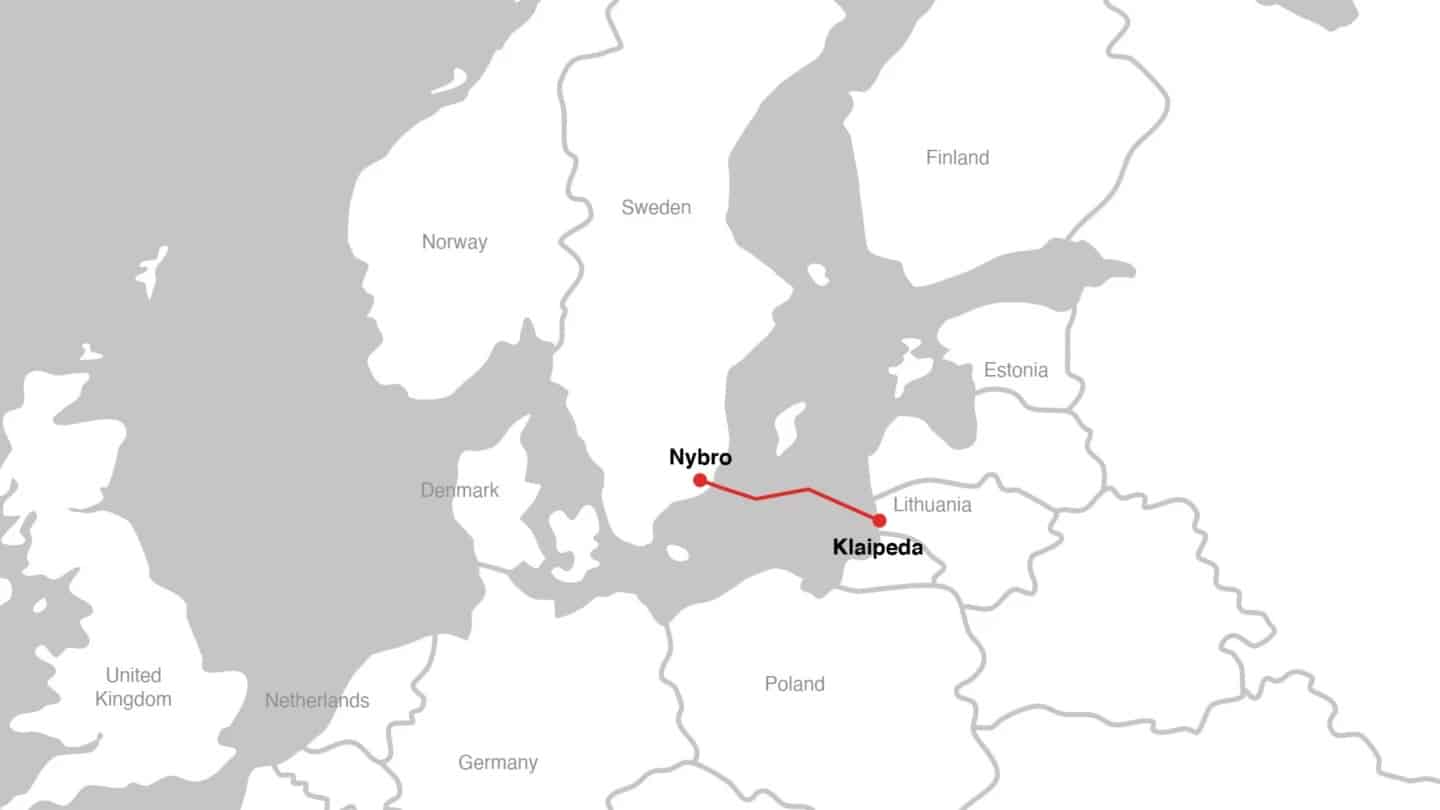Two recent incidents have highlighted the vulnerability of critical infrastructures in the Baltic Sea. The cutting of submarine telecommunications cables between Finland and Germany and between Lithuania and Sweden has temporarily interrupted essential services, affecting both digital communications and electricity supply security in the region.
Cut in the Lithuania-Sweden Cable: Mitigated Impact
On Sunday, November 12, a failure was detected in the submarine cable connecting Lithuania to Sweden. According to Andrius Šemeškevičius, Chief Technology Officer of Telia, the company’s systems reported a loss of connection around 10:00 AM.

“Subsequent investigations confirmed that the cable had been damaged,” Šemeškevičius explained on the Lithuanian television program Important Hour.
This cable is one of three key links that ensure internet connectivity for Lithuania. Although the incident temporarily reduced the bandwidthBandwidth is the maximum transfer capacity … by one-third, Telia was able to restore service by rerouting traffic through alternative paths.
Total Outage Between Finland and Germany
The most severe incident occurred with the cable that connects Finland and Germany, the only direct link between the two countries. This cable, managed by the Finnish company Cinia, is nearly 1,200 kilometers long and plays a crucial role not only in telecommunications but also in the connectivity of other critical infrastructures, such as gas pipelines and submarine electric cables.
The outage has severed direct communication between Finland and Central Europe, underscoring the vulnerability of these strategic connections. The origin of the damage is still under investigation, and no hypotheses are being ruled out, including the possibility of external interference.
Security Context: Geopolitical Tensions in the Baltic
These incidents come weeks after the United States warned of an increase in Russian military activity near strategic submarine cables. Although no direct links have been established between these incidents and military activity, European authorities have intensified surveillance of these infrastructures.
Submarine cables are essential for data and electricity transport, managing over 95% of global internet traffic. Their vulnerability makes them potential strategic targets, especially in contexts of geopolitical tensions.
NordBalt: A Key Energy Connection
In addition to telecommunications, the incident with the cable between Lithuania and Sweden raises concerns about energy supply in the region. The NordBalt interconnection, which connects the electrical grids of the Baltic countries with the Nordic countries, is a key project to ensure Lithuania’s energy independence and strengthen the region’s electricity market.
With a length of 453 kilometers, the NordBalt HVDC (high voltage direct current) system was designed to integrate energy markets, enhance competitiveness, and provide alternative sources of electricity. Its installation, completed in 2015, included security measures to protect the cable in sensitive areas such as former minefields and areas protected by the Natura 2000 network.
Although no damage has been reported to NordBalt, the recent outages highlight the importance of protecting energy and telecommunications infrastructures in the Baltic.
Resilience and Future Planning
The recent incidents underscore the need to reinforce the resilience of critical infrastructures in Europe. In both Lithuania and Finland, dependence on unique or limited submarine cables poses risks that must be addressed through increased route diversification and redundancy in connections.
Moreover, governments and operators must enhance surveillance and international cooperation to protect these infrastructures from external threats and environmental risks. Initiatives like NordBalt and the networks managed by Cinia and Telia are examples of the importance of combining advanced technology with robust security measures.
Conclusion: Lessons from an Interconnected Baltic
The cuts in the submarine cables between Finland and Germany, and between Lithuania and Sweden, have not only had immediate repercussions on digital connectivity and energy supply but also highlight the challenges Europe faces in protecting its strategic infrastructures.
In an increasingly interconnected world, ensuring the security of these infrastructures is crucial for the economic, political, and social stability of the continent. Recent incidents serve as a reminder of the importance of investing in resilient and coordinated systems that can withstand both technical challenges and geopolitical tensions.

